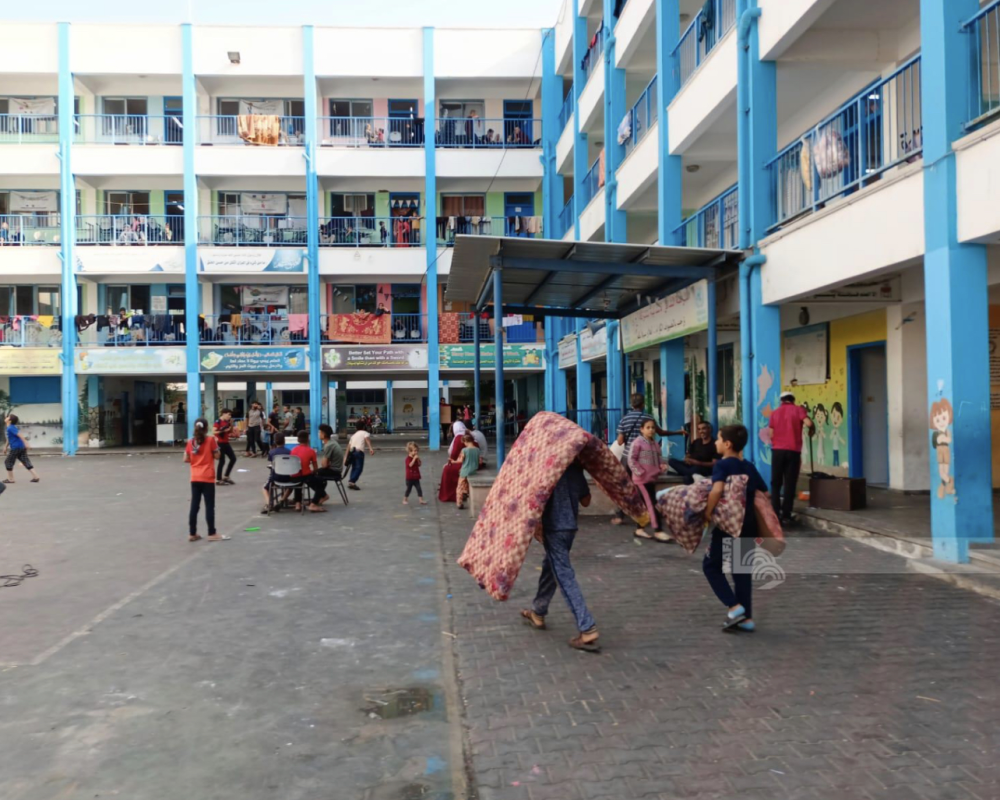
Gaza /PNN /
An UNRWA school sheltering displaced families in the Gaza Strip was directly hit today. The school, sheltering more than 225 people, was severely damaged. No casualties were recorded among the displaced.
Meanwhile, the number of people forced to flee their homes in search of safety has significantly increased overnight. Nearly 74,000 displaced people are now in 64 UNRWA shelters, with numbers likely to increase as heavy shelling and airstrikes continue including on civilian areas.
UNRWA teams are providing families with shelter and clean water. Supplies are being prepared to deliver to families, including food, hygiene kits and cleaning supplies.
Civilians must be protected at all times, including during fighting. UNRWA supports calls to reach an immediate ceasefire and a halt to the violence everywhere.
Schools and other civilian infrastructure, including those sheltering displaced families, must never come under attack.
Palestinian Ministry of Health in Gaza reported 436 killed, including at least 20 children, and 2,200 injuries since 7 October. Three students at UNRWA schools in Khan Younis and Beit Hanoun, all boys, are confirmed to be among the casualties.
Across the Gaza Strip, UNRWA provides services to 1.4 million Palestine Refugees, including food aid to nearly 1.2 million.
UNRWA is the United Nations Relief and Works Agency for Palestine Refugees in the Near East. The United Nations General Assembly established UNRWA in 1949 with a mandate to provide humanitarian assistance and protection to registered Palestine refugees in the Agency’s area of operations pending a just and lasting solution to their plight.
UNRWA operates in the West Bank, including East Jerusalem, the Gaza Strip, Jordan, Lebanon and Syria.
Tens of thousands of Palestine refugees who lost their homes and livelihoods due to the1948 conflict continue to be displaced and in need of support, nearly 75 years on.
UNRWA helps Palestine Refugees achieve their full potential in human development. It does this through quality services it provides in education, health care, relief and social services, protection, camp infrastructure and improvement, microfinance, and emergency assistance. UNRWA is funded almost entirely by voluntary contributions.